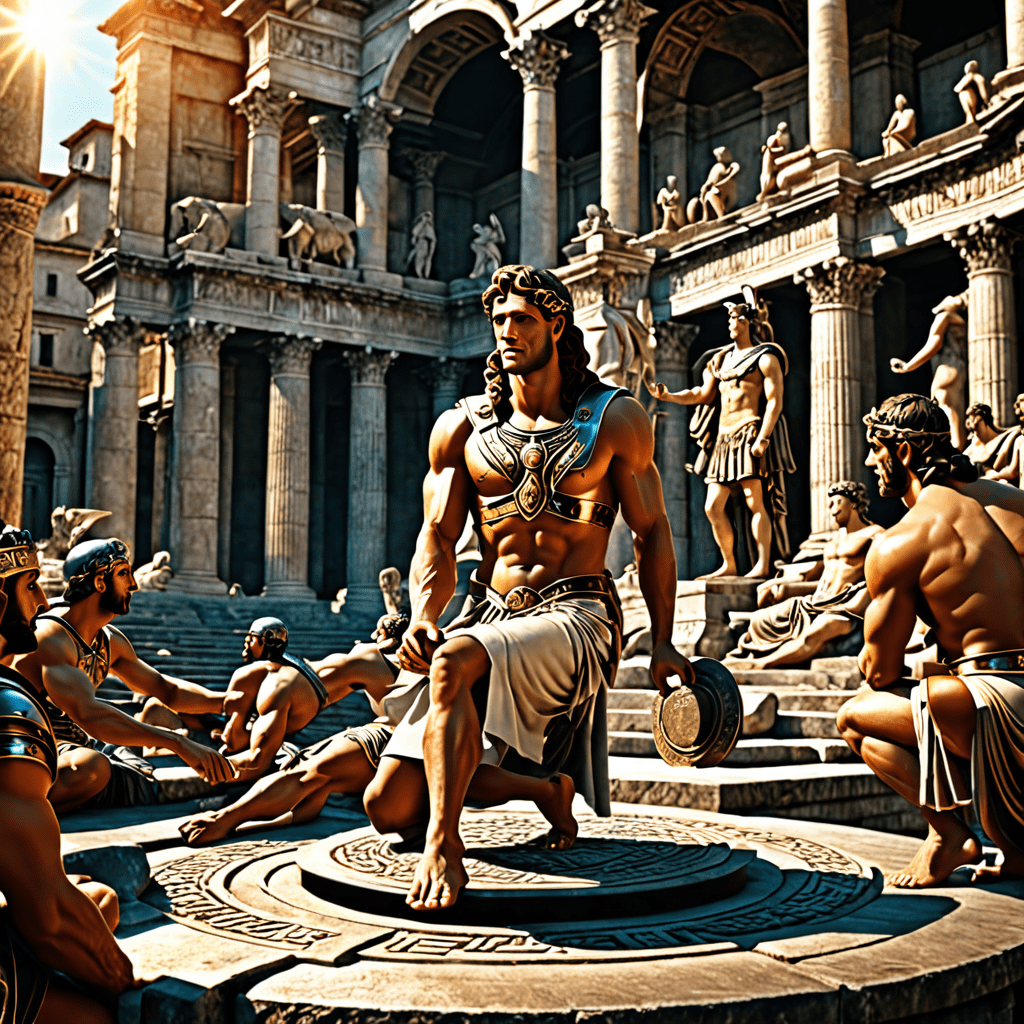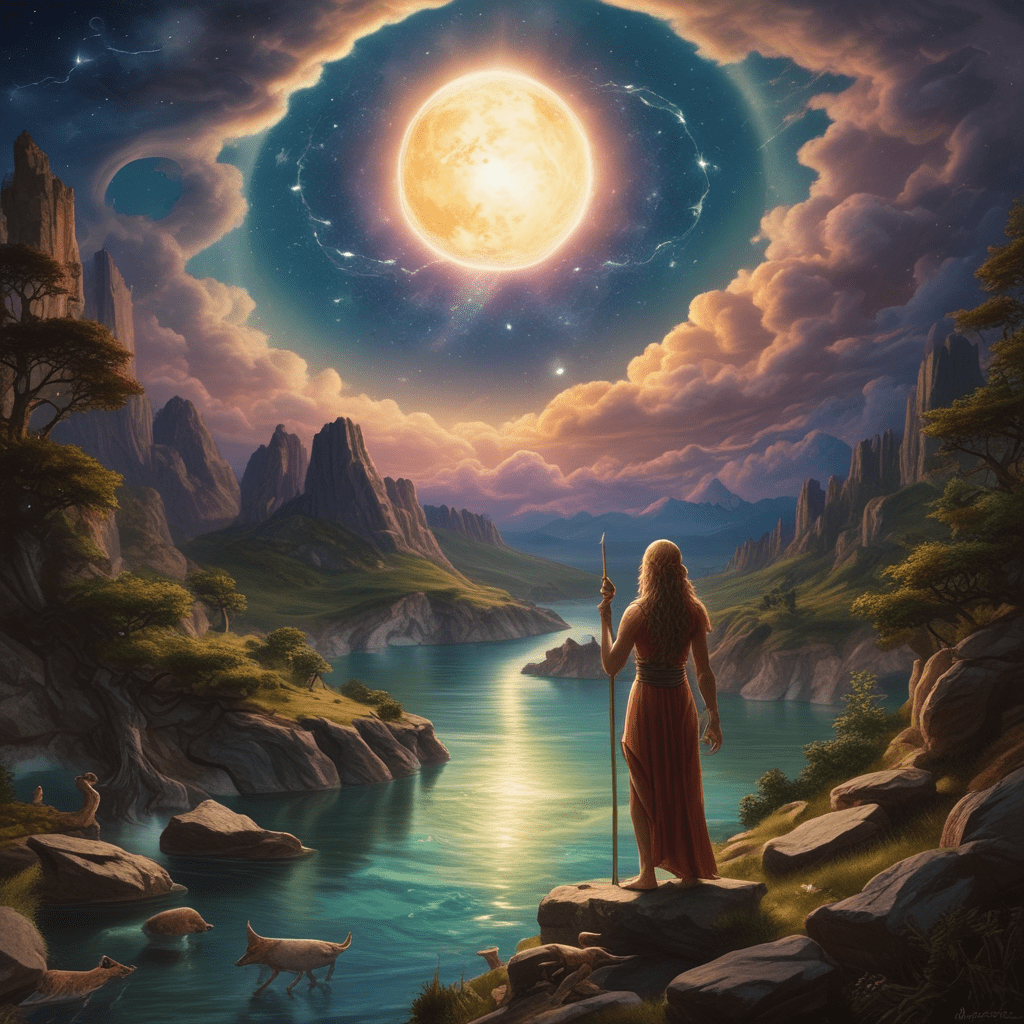The Most Shocking End of the World Predictions in History
Introduction: The Allure of Apocalypse
Humanity has always been captivated by the prospect of the end of the world. From ancient civilizations to modern societies, the allure of apocalypse has inspired countless predictions, myths, and narratives. These predictions often reflect a society’s fears, hopes, and values, making them a fascinating lens through which we can understand historical and cultural contexts. By examining these predictions, we gain insight into how different eras have grappled with existential threats, and how such beliefs can impact societies.
Ancient Prophecies: From Nostradamus to the Mayan Calendar
Throughout history, many individuals have emerged as prophets, predicting cataclysmic events. One of the most famous is Nostradamus, a 16th-century French astrologer whose cryptic quatrains have been interpreted as foretelling a variety of disasters, including wars and natural calamities. His predictions are often vague, allowing for a multitude of interpretations, which has contributed to their enduring fascination.
Another significant source of apocalyptic speculation comes from the Mayan Calendar, which many believed predicted an apocalypse in 2012. This interpretation was fueled by a misreading of Mayan cosmology, leading to widespread anxiety and speculation about the end of times. The year came and went without incident, yet the myth of the Mayan apocalypse remains a popular topic of discussion today.
Religious Forecasts: Biblical Revelations and Doomsday Cults
Religious texts have long been a source of apocalyptic predictions. In Christianity, the Book of Revelation describes a series of catastrophic events leading to the end of the world and the second coming of Christ. The imagery of the four horsemen of the apocalypse, the last judgment, and the battle of Armageddon has influenced countless interpretations and movements throughout history.
Several doomsday cults have emerged, driven by these religious forecasts. Notable examples include:
- Heaven’s Gate: This cult believed that suicide would allow them to ascend to a higher existence, coinciding with a predicted extraterrestrial event.
- The Branch Davidians: Led by David Koresh, this group believed in an imminent apocalypse that would lead to their salvation.
Scientific Predictions: The Role of Astronomy and Climate Change
Scientific predictions about the end of the world have also stirred public concern. Events such as Y2K—a computer glitch that was expected to cause global chaos at the turn of the millennium—resulted in widespread panic, though ultimately nothing catastrophic occurred. Similarly, the arrival of Halley’s Comet in 1986 prompted fears of impending disaster, but again, the comet passed without incident.
In contemporary discussions, climate change has emerged as a significant concern, with scientists warning that failure to address environmental issues could lead to catastrophic outcomes for humanity. The potential for rising sea levels, extreme weather events, and ecological collapse has fueled debates about climate-related apocalyptic scenarios.
Technological Catastrophes: The Digital Apocalypse
As technology advances, so do fears of technological catastrophes. Predictions about artificial intelligence and machine learning taking over human functions have sparked debates about the potential for a “digital apocalypse.” Concerns include:
- The loss of jobs and economic instability as automation replaces human labor.
- The fear of AI surpassing human intelligence, leading to unforeseen consequences.
Additionally, the specter of nuclear war looms large in discussions about technological doom. The destructive potential of nuclear weapons has led to apocalyptic fears throughout the 20th and 21st centuries, particularly during the Cold War.
Cultural Reflections: End-of-the-World Themes in Literature and Film
The theme of apocalypse has permeated literature and film, reflecting societal anxieties. Notable works include:
- “The Road” by Cormac McCarthy: A post-apocalyptic novel that explores survival and the human condition in a desolate world.
- “1984” by George Orwell: While not explicitly apocalyptic, it depicts a dystopian society that evokes fears of totalitarianism and loss of individuality.
Films such as “The Day After Tomorrow” and “Mad Max” have also shaped public perceptions of apocalypse, often dramatizing the consequences of environmental disasters or societal collapse.
Political Predictions: Fear-Mongering and Propaganda
Throughout history, political leaders have utilized apocalyptic rhetoric to manipulate public sentiment and maintain control. By framing certain issues as existential threats, leaders can rally support for their agendas or distract from other pressing concerns. Historical examples include:
- The Cold War, where the threat of nuclear annihilation was used to justify military spending and intervention.
- Modern political movements that leverage fears of terrorism or immigration to create a narrative of impending doom.
Psychology of Doomsday Beliefs: Why We Predict the End
The belief in doomsday scenarios is often driven by psychological factors. Anxiety and uncertainty about the future can lead individuals to seek explanations for their fears. This need for understanding can manifest in apocalyptic beliefs, which provide a framework for interpreting complex societal issues. Additionally, the desire for control in an unpredictable world can make apocalyptic narratives appealing as they offer a clear, albeit often misguided, resolution to existential fears.
Debunking Myths: The Truth Behind Failed Predictions
History is replete with failed predictions of the end of the world. Some of the most notable include:
- The prediction by Harold Camping that the Rapture would occur on May 21, 2011, which did not happen.
- The widespread belief that the world would end in 2000 due to the Y2K bug, which turned out to be largely unfounded.
These failed predictions offer valuable lessons about the nature of belief and the importance of critical thinking when confronted with claims of impending doom.
Conclusion: The End of Times or a New Beginning?
The myriad predictions about the end of the world reveal much about humanity’s hopes and fears. They highlight our struggles with uncertainty and the desire for meaning in the face of chaos. While many predictions have failed, the patterns of belief surrounding them continue to resonate in modern society. As we look to the future, it is crucial to approach doomsday predictions with a critical mindset, recognizing their potential to shape public perception and influence our collective psyche. Rather than viewing these predictions as inevitable outcomes, we can see them as reflections of our ongoing quest for understanding in an unpredictable world.



